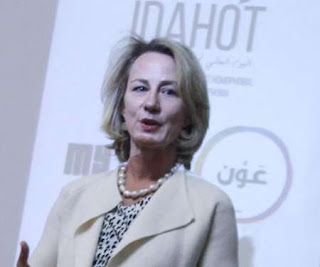The Jewish Revolt
Review: Bruce Hoffman, ‘Anonymous Soldiers: The Struggle for Israel, 1917-1947’Post-WWII, Jews were ‘used as pawns’ by world superpowers
Bruce Hoffman’s Anonymous Soldiers is a deftly written account of the Jewish revolt against the British in 1940s Palestine. Despite its scholarship—it draws heavily on recently declassified British documents—and its significant bulk, it is a page-turner that leaves the reader feeling sorry once the book is finished.
Unlike most accounts of the Jewish underground, this one tells the story from the British point of view, though without taking Britain’s side. It leaves the reader with no doubt that it was the Irgun, and to a lesser extent the much smaller Lehi, that drove the British from Palestine, and not, as the longtime mythology of Israel’s Laborites would have it, David Ben-Gurion’s skillful politicking.
It was Lehi that began the terror war against the British in 1940. Its members were completely isolated at first, perceived by the Yishuv—a term for Palestine’s Jewish community—as a criminal gang. Lehi was led by Avraham (Yair) Stern, whom Hoffman describes as a man “of grandiose dreams and half-baked plans,” an outstanding classics student at Hebrew University, and a poet. The title of Hoffman’s book comes from a poem written by Stern, which would become Lehi’s anthem. Stern was killed by the British in 1941, and the group’s remaining members killed or captured. The group was revived in 1943 under the leadership of Yitzhak Shamir, decades later to become Israel’s prime minister.
In 1944, when it was clear that the Nazis would be defeated, the Irgun, too, declared a revolt. Its new leader was Menachem Begin, who had led the Jewish nationalist youth group Betar in Poland. Hoffman considers Begin a first-class strategic thinker who recognized that he could not defeat Britain militarily and so decided “systemically [to] undermine its authority,” believing that if the Irgun could destroy the government’s prestige “the removal of its rule would follow automatically.” Through the Irgun’s violent actions, he made Palestine a center of world attention, a “glass house” as he described it, where every British misstep was broadcast to the world.
The end of World War II brought with it the end of the Holocaust, and beginning in July 1944 with Majdanek, concentration camps in Poland and Germany including Auschwitz, Bergen-Belsen and Dachau, were liberated by Allied forces. On May 8, 1945, the day Nazi Germany surrendered unconditionally, Soviet troops also liberated Theresienstadt.NYT Prints Anti-Israel Op-ed by Player from Terrorist-Linked Palestinian Soccer Club
But the end of the Holocaust shouldn’t be confused with the end of liberation itself. In his new book “The Liberation of the Camps: The End of the Holocaust and Its Aftermath,” Dan Stone, a professor of Modern History at Royal Holloway, University of London, argues liberation “was a process, something that happened over time.” It did not “immediately bring about an end to the camp inmates’ suffering,” particularly for the thousands of Jewish displaced persons (DPs) who remained stuck in camps in Europe for years after the war.
In “The Liberation of the Camps,” published mid-May, Stone also makes clear that “the murder of the Jews and the collapse of the Third Reich helped to shape the pattern of the postwar world,” including in the Middle East.
The Times of Israel sat with Stone at his University of London office at Royal Holloway to discuss the fate of Jewish DPs and how, as both a refugee problem and an international question, they became caught up in the politics of the Cold War and the domestic affairs of the superpowers.
The New York Times has published an op-ed by Palestinian soccer player Iyad Abu Gharqoud, demanding that FIFA kick Israel out of international soccer. The Times allows Gharquod to play the role of the aggrieved victim but ignores the fact that his soccer team, the Hilal Al-Quds club, held a tournament for 12-year-olds named for terrorist Dalal Mughrabi, who led an attack on a bus in 1978 that killed 37 Israeli civilians, including 12 children, according to Palestinian Media Watch.
Gharqoud’s main complaint is that Palestinian “coaches and referees are blocked from moving between the West Bank and Gaza Strip, and frequently are barred from tournaments.” That is for the very simple reason that Palestinian terrorists are still at war with Israel.
The terrorist group Hamas, for example, controls the Gaza Strip and uses it to launch deadly attacks on Israeli civilians, resulting in restrictions on travel that necessarily apply to all Palestinians, not just elite soccer players.
When peace-oriented groups have organized friendly soccer matches between Palestinians and Israelis, the Palestinian Authority has denounced them. Last year, Palestinian officials called a game between Israeli and Palestinian boys, which was sponsored by the Peres Center for Peace, a “crime against humanity.”
The man who made that statement, Jibril Rajoub, is leading the effort to have Israel suspended from FIFA. Gharqoud mentions none of that in his Times op-ed.



































